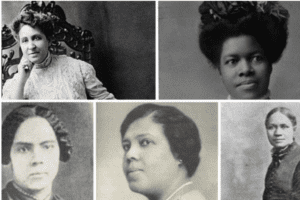2020 marks the 100th anniversary of (most) women’s right to vote in the United States. Many suffragists fought for the right to vote but never got the franchise themselves, either because they died before it was granted, or because they were marginalized due to their race. Black suffragists like Mary Church Terrell are examples of Black women speaking out not knowing if the law will extend to them during their lifetime. In February 1898, Terrell spoke at the National American Woman Suffrage Association convention in Washington, D.C. Learn more: http://bit.ly/SomebutNotAll
Connecticut Explored published research on Black Suffragists dated back to 1893, when Hartford’s Rose Payton voted on school issues, after Connecticut granted all women the right to vote, albeit for school and library elections only. In addition, the research explores two very politically involved women and describes how Mary A. Johnson ran for the State House of Representatives, and that Mary Townsend Seymour was the first African American woman to run for state office in Connecticut. Partners include the Department of Economic and Community Development, and the Mark Twain House and Museum.
Read more in the issue on 100th anniversary of women’s suffrage, and their Op-Ed in The Hartford Courant, What About the Struggle for Black Suffrage in Connecticut?
The Connecticut Historical Society also has The Work Must Be Done: Women of Color and the Right to Vote.
The National African Amerian History & Culture Museum has more about African American Suffragists called The Five You Should Know.


